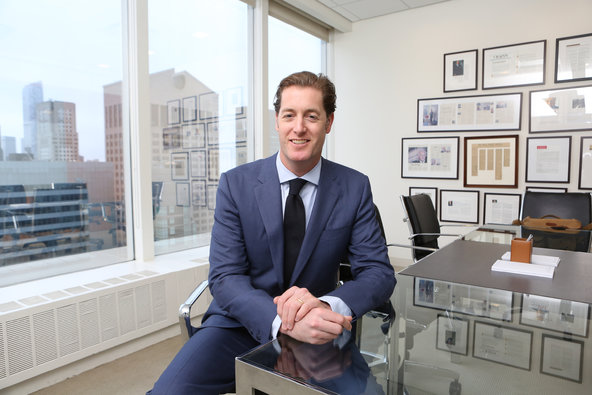If you’re an aspiring billionaire, or the real thing, it won’t surprise you to know there is lots of competition among brokerdealers for your big account. Find the right broker-dealer, and the right individual broker who can be trusted to provide good guidance, and you can take two items off of your check list.

Chester Higgins Jr./The New York Times.Thorne Perkin, a wealth adviser, said the young tech group was not to be ignored.
Searching for a broker to manage your bucks (or yen, or euros, or maybe your bitcoin fortune)??.. Today’s article from the NYT Dealbook is worth your read….here are some extracts:
When Microsoft went public in 1986, its chief executive and largest shareholder, Bill Gates, wound up with a broker at Goldman Sachs, the Wall Street firm that had led the company’s initial public offering.
The San Francisco broker, William Hobi, was so excited to have Mr. Gates as a client that he put a vanity license plate on his Porsche for a few years with the letters MSFT, the trading symbol for the company’s stock.
Times may have changed, but technology billionaires still set the engines racing among Silicon Valley brokers. Social media I.P.O.s, including LinkedIn, Facebook and Twitter, and acquisitions like Facebook’s planned $18 billion purchase of WhatsApp have created more than a dozen billionaires, by one count of Forbes magazine data.
Competition to handle their money is intense. “Every day I get a connection request from a wealth manager on LinkedIn,” said Michael Cagney, the founder and chief executive of Social Finance, or SoFi, an online student-loan platform in San Francisco that might go public in the next year or two. Mr. Cagney sold another financial software company, Finaplex, in 2007 and runs a hedge fund.
Of course Goldman and its archrival, Morgan Stanley, the longtime leader of tech I.P.O.s, have the biggest share of the market partly because their brokers can forge close ties with technology titans in the I.P.O. process. Goldman’s clients have included Meg Whitman, the chief executive of Hewlett-Packard who was chief of eBay when Goldman led its I.P.O. in 1998. Morgan Stanley’s roster has included the venture capital investor Brook Byers and Raymond J. Lane, the former executive chairman of HP.
But more than two years ago, the charismatic South Africa-born broker Divesh Makan, who had worked at Goldman and Morgan Stanley, took a bite out of their books by starting his own firm, Iconiq Capital, with a pack of Silicon Valley billionaires led by Mark Zuckerberg and Sheryl Sandberg of Facebook and Reid Hoffman of LinkedIn. Iconiq now manages $7.6 billion, up more than 50 percent in the last year.
Mr. Makan has enlisted the aid of Addepar, a start-up backed by an early Facebook investor, Peter Thiel, which adds custom big-data analytics to client reports. He has also put clients into an array of pre-I.P.O. technology start-ups, including the Alibaba Group, the China e-commerce giant that has filed to go public. The posted price for his service is not cheap. He charges up to 1.5 percent of assets under management annually; but all his clients pay less than half that based on their account sizes.
Already, Mr. Makan’s rivals are looking for possible defections. One Iconiq client, Mark Pincus, co-founder of the social gaming developer Zynga, has shifted some of his assets to a Manhattan firm, Seven Bridges Advisors, led by Laurence W. Cohen, chairman of the investment committee at Brown University. Seven Bridges advises institutions and wealthy individuals with an approach similar to that used by large endowments.
Another client who has pulled some assets from Iconiq is Chris Hughes, the co-founder of Facebook who bought The New Republic in 2012.
Managing money for the ultrawealthy has its own demands and challenges.
For the full article from the NYT, please click here